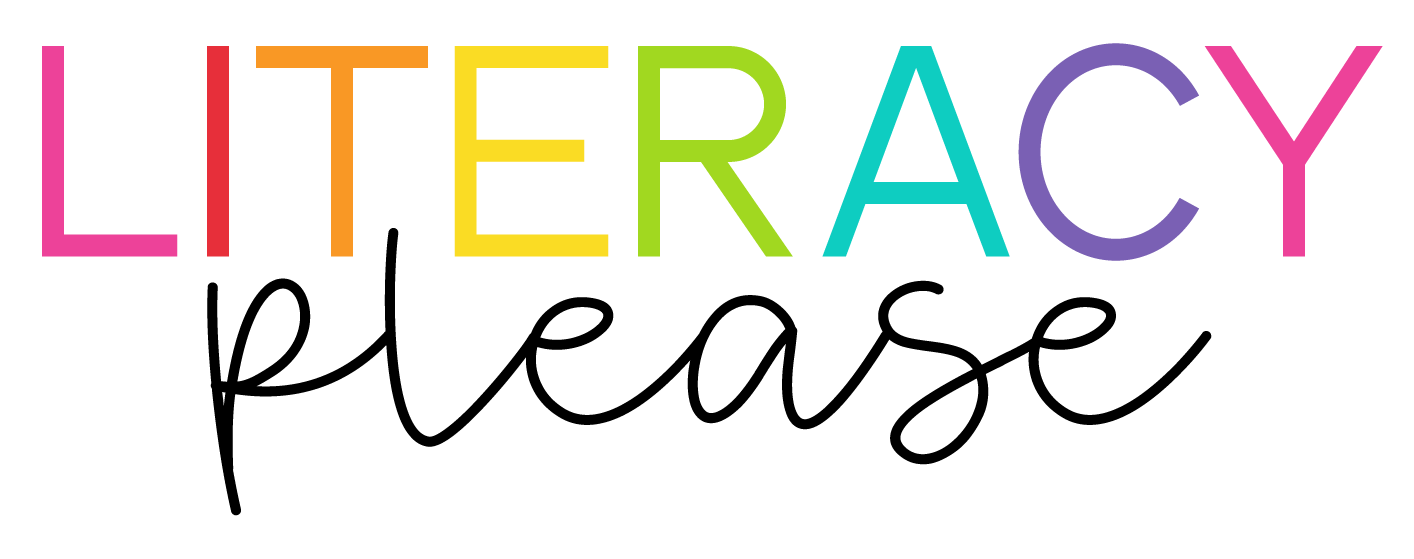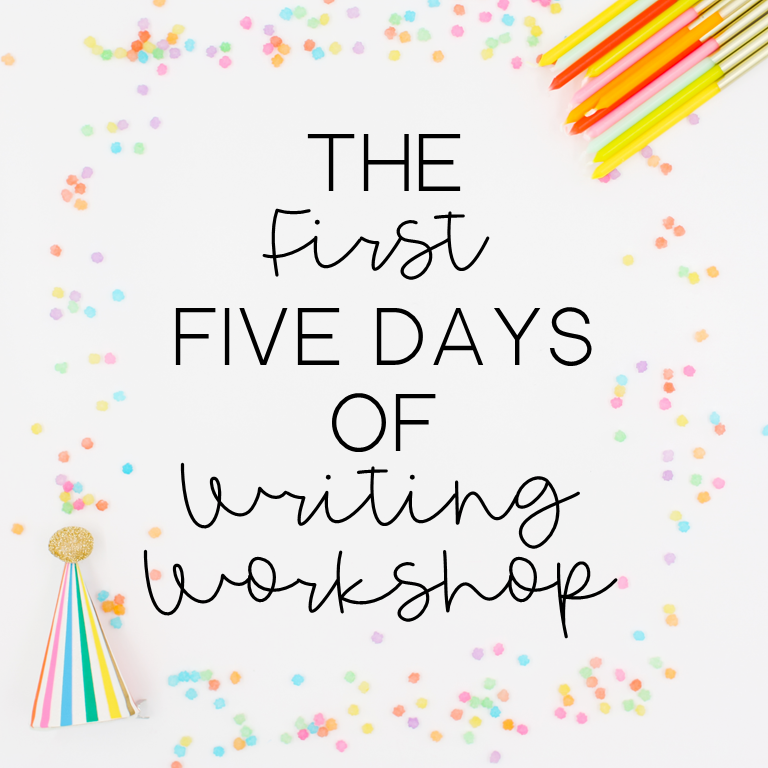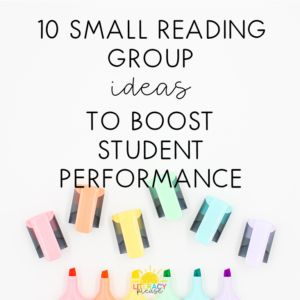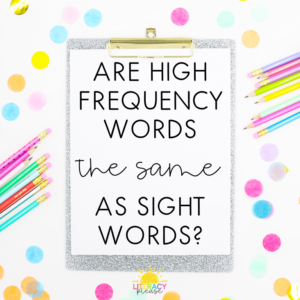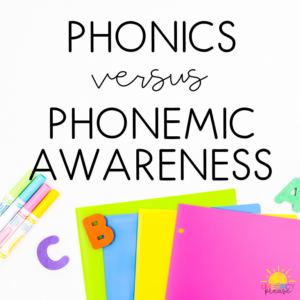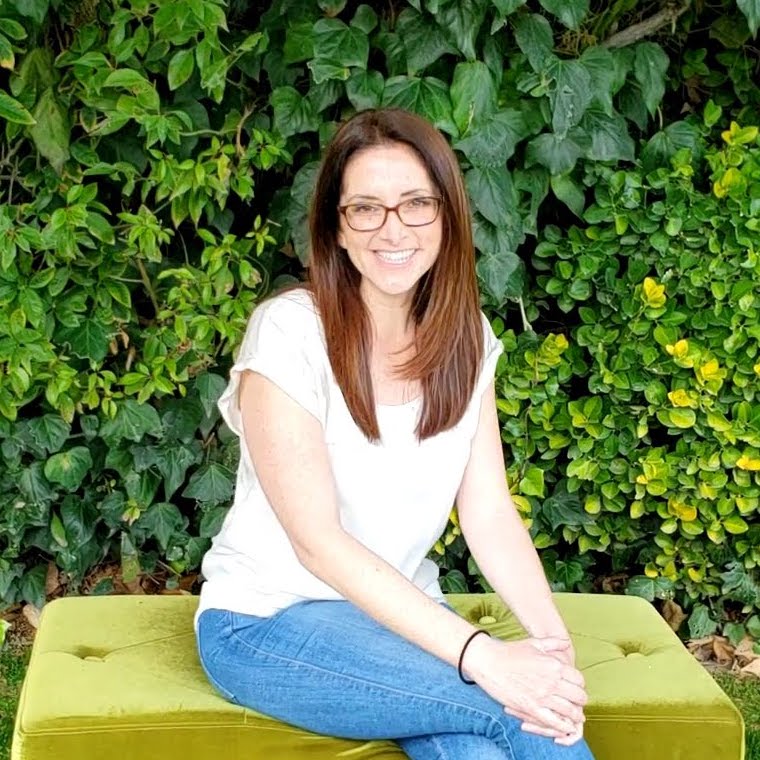Have you ever started something in your classroom and it just didn’t go as planned? Then that mess kind of carried on for the rest of the year? I’ve certainly been there. But like I tell new teachers, you can’t do it all. Even if you’re not a new teacher, there’s still something to improve. I recently took a survey and found that most teachers would rather teach anything other than writing. Do you feel the same way? I can say I did at one point. That’s why I developed The First 5 Days of Writing Workshop, a guide to launching writing workshop in your classroom and preparing students for a year of writing with enjoyment.
During this launch your students will do most of the work on their own. They will try new things and practice making their own books. You’ll give them very little direction; let them learn on their own and learn from other students. They’ll figure out the writing process on their own, they’ll think of ideas on their own, they’ll do it all on their own with you cheering on every success whether it be adding details to their illustrations or spelling a word on their own. Just think of the first 5 days as days of discovery.
Before we get started, I want to put you at ease. Every class is different. Every school and schedule is different and if these first 5 days turn into 6 or 7, so be it.
What is Writing Workshop?
Writing workshop is a model used during a 40-55 minute block of time to instruct students in writing. The first 10 to 15 minutes are dedicated to a mini lesson where the teacher will teach a short lesson, and then invite students to try it during 25 to 30 minutes of independent writing. Read more about writing workshop here.
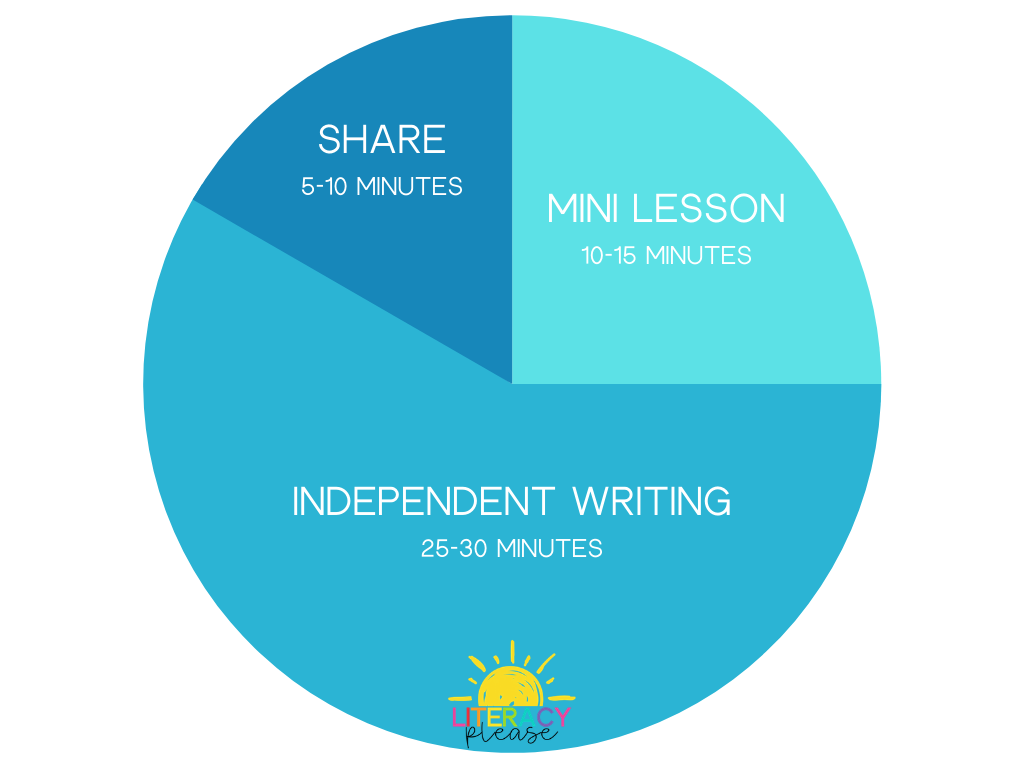
Mini Lesson
Mini lessons are short lessons that teach a strategy or a skill. During the lesson you begin by reminding students of something they’ve been working on. Then you’ll introduce something new you’ll be teaching the kids by telling them what it is and modeling it. Next, the students practice with you to check for their understanding. Finally, students are invited to try it on their own during independent writing.
Independent Writing
During independent writing, students are writing while the teacher is either conferring with one student at a time or meeting in small groups of 2 to 5 students. Small groups are ideal because you can work with students at varying levels, but all need something similar. For example, maybe you have a group of students that need to work on adding more detail to their illustrations or a group of students that need practice writing introductions. When you find several students that need something similar, group them together and work on that skill or strategy.
Share
After independent writing, students will participate in a share. A share includes students sharing something with the class that you’d like the rest of the students to learn or be exposed to. For example, if during independent writing you observed Rafael using transition words, and you’d like the rest of the class to try, you’d have him share. Or if you noticed Isabella editing her writing and you’d like others to try it, have her share.
Sometimes you’ll have students share with a partner. It might be to share their writing progress or they’ll share the process their using. Maybe you’ll have them share a certain strategy. At times, we tend to skip over the share, but we need to keep in mind this is an important piece to writing workshop. Students get a chance to talk about their writing and to learn from one another.
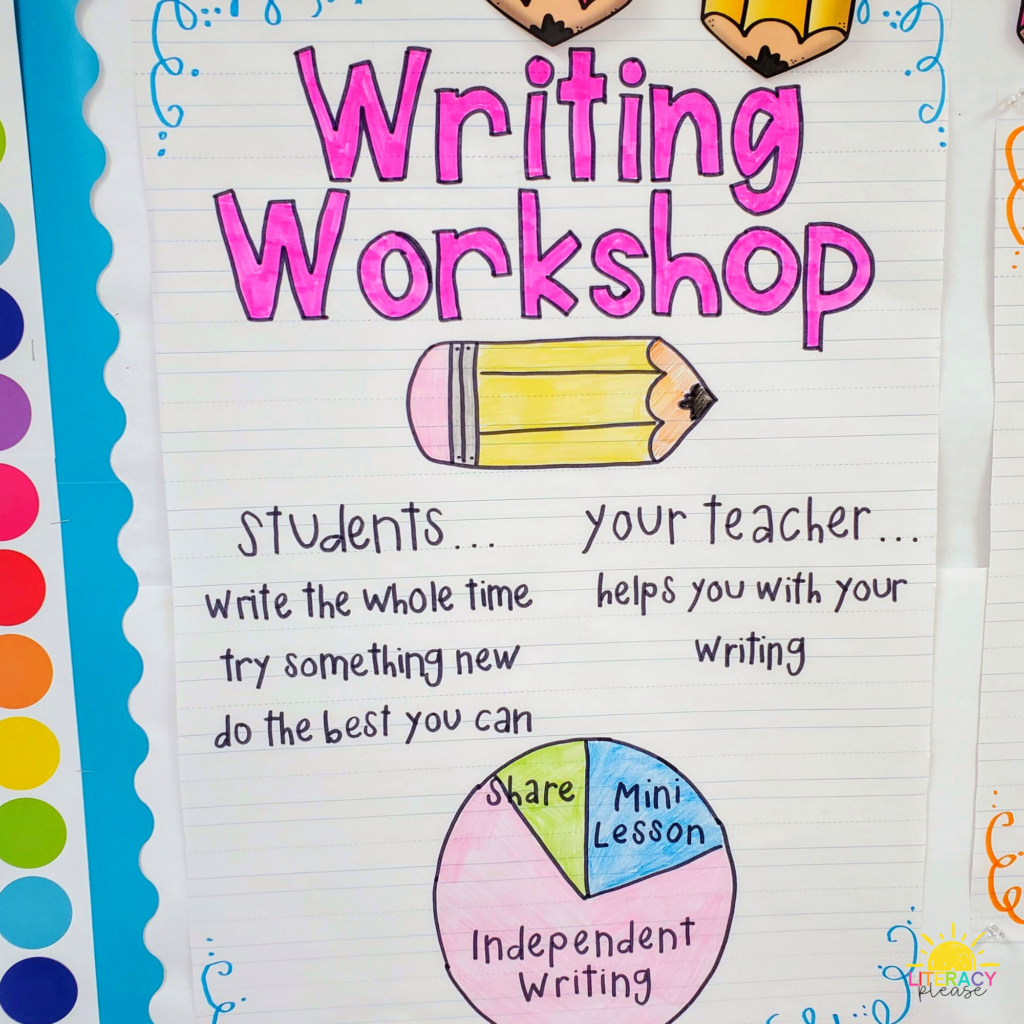
Day 1 : Authors and Illustrators
Today is the day! The first day of your launch. How excited are you?! Now, we know how much kids love read alouds and writing workshop wouldn’t be the same without mentor texts and mentor authors. To get started, you and your students will explore books written and illustrated by the same person. This article, Mentor Texts to Launch a Fantastic Writing Workshop, gives you some great authors to choose from. Once you choose an author, read several books to your students throughout the day leading up to writing workshop. Have a class discussion about the author and his/her job. Have students talk about what they like about the books or things they noticed. Help your students see authors as real people.
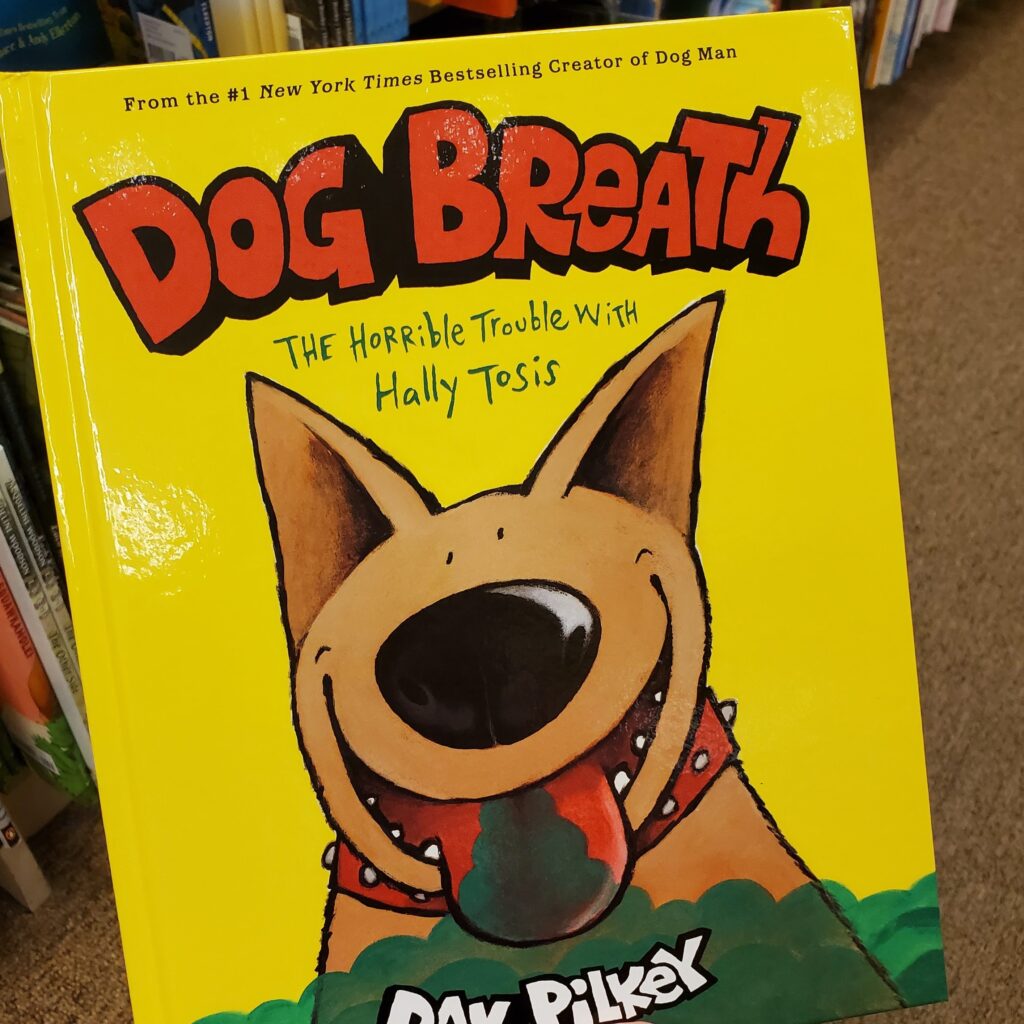
Launch Day 2: Sharing the Process
The idea of these first 5 days is to let your students discover how books are made; how writers write. Your job is to enable students into believing they, too, are writers. So, as you begin Day 2, encourage students to talk about the steps they took while making their books. Ask students what they did first and gather several responses since you will get different ideas. Then continue by asking about the other steps they took.
Create a chart with their ideas and use it to ask students what they will do as they begin writing today-Will you use any of these steps as you begin writing today? Eventually, you’ll give a name to these steps. For example, brainstorming, planning, revising, editing. . .
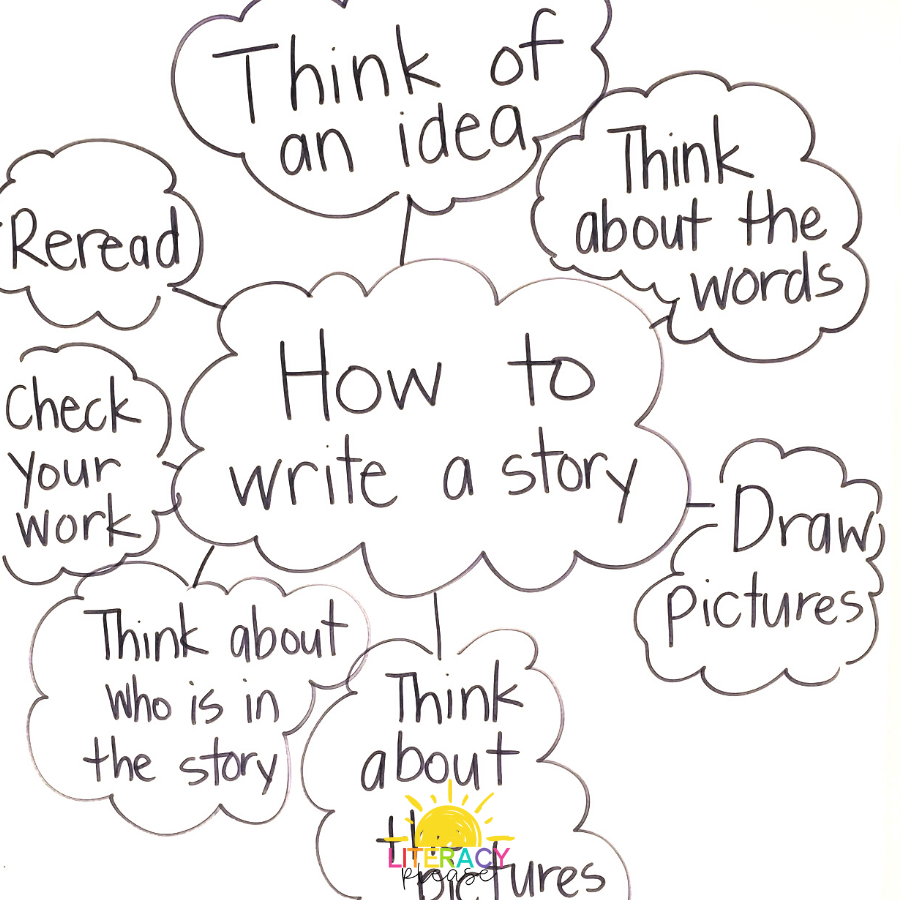
Launch Day 3: Brave Spelling
Spelling is one thing that holds kids back from writing. They become caught up in not knowing how to spell a word and, in turn, stop writing. Like I said before, writing workshop is the teacher’s time to be a cheerleader; encourage kids to write! So during Day 3, you’ll show kids that writers may not know how to spell every word, but that’s OK. And spelling those scary words takes bravery.
You might want a brave spelling class mascot, like Stretchy Sloth here. We use him to stretch out big words and practice our brave spelling skills. He also stretches a slinky as he’s stretching the words to show a visual of the stretch. The kids love him!
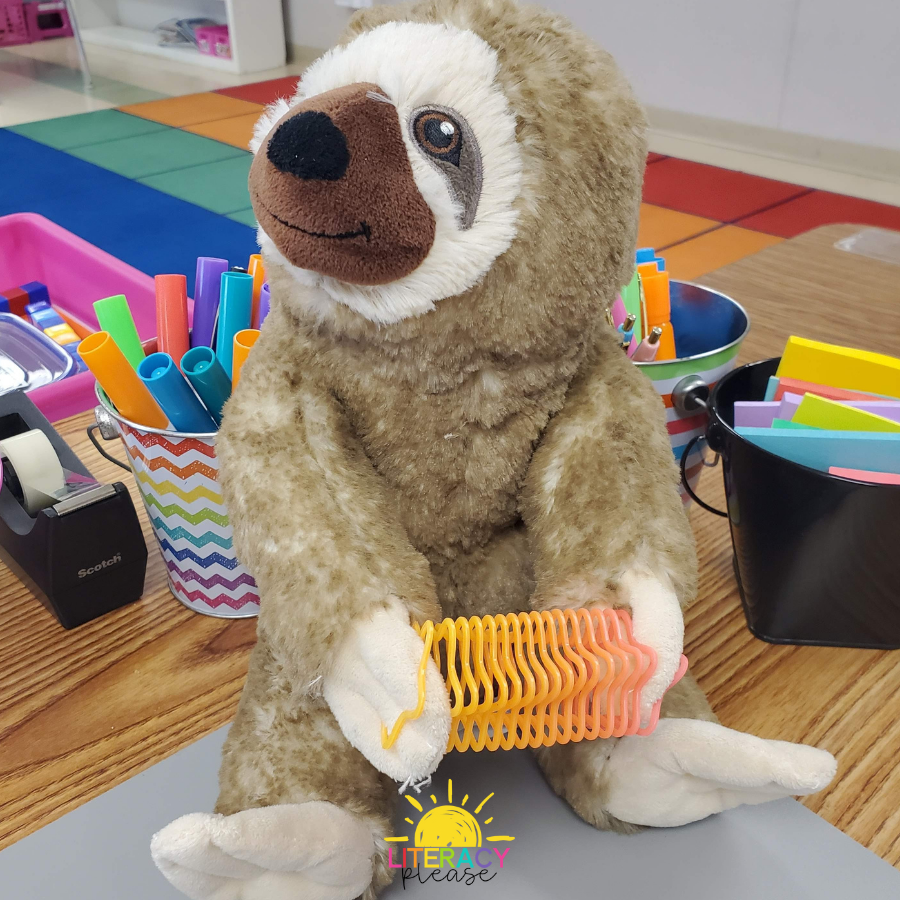
I had the pleasure of having a student write about tsunamis in his first book. Why was it my pleasure? Because he was the perfect student to share his brave spelling. I mean, come on, tsunamis (did I even spell that correctly)?!
I had this student share his brave spelling with the class and told them, “Alex could have written about his dog because dog is a word he knows how to spell well, but instead he wrote about tsunamis.” I had Alex show his spelling and I had him show the class how he sounded out the word. Of course the kids didn’t know how cute I thought this was, they just knew I thought Alex had spelled a brave word. I share this story with you because you can appreciate it. Alex had spelled tsunami: zomommy. As in ZOO-MOMMY.
Looking for more? Check out Brave Spelling is Exactly What Your Students Need.
Launch Day 4: Writing Workshop Resources
Giving students writing resources and showing students how to use the resources are two different things. Being the honest and completely transparent person that I am, I will admit that I have given my students resources to use, but never showed them how to use them.
Whether you have an alphabet chart, high frequency words, transition words, blends chart, show students how to use them. Not only will this help free up energy for writing, but you’ll teach your students to be problem solvers.
So on Day 4 introduce some of your resources and discuss how they can be used.
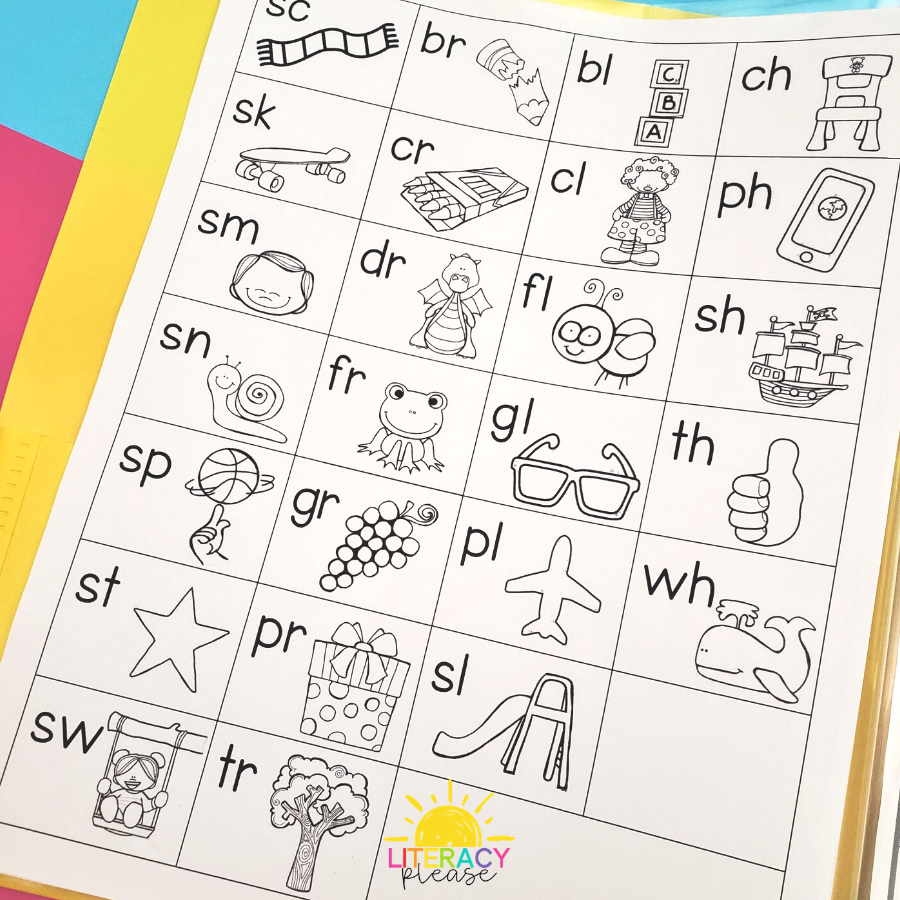
Launch Day 5: Writers Celebrate Their Writing
I cannot stress to you how important this part it. You’ll just have to take my word. When I tell my students it’s time to celebrate, they couldn’t be happier. You’d think they were going to Disneyland. I’ve had parents emailing me to ask if their child could share on a different day because their child won’t be at school on celebration day.
You might be asking, how much prep is this celebration? None. Absolutely none. I’ve had celebrations where kids go up to the front of the classroom and read their books. I’ve had celebrations where students bring a towel and a snack and we have a picnic while they share with a buddy (ok that took me notifying parents). But the point is, celebrations don’t need to be fancy. They only require you to be excited.
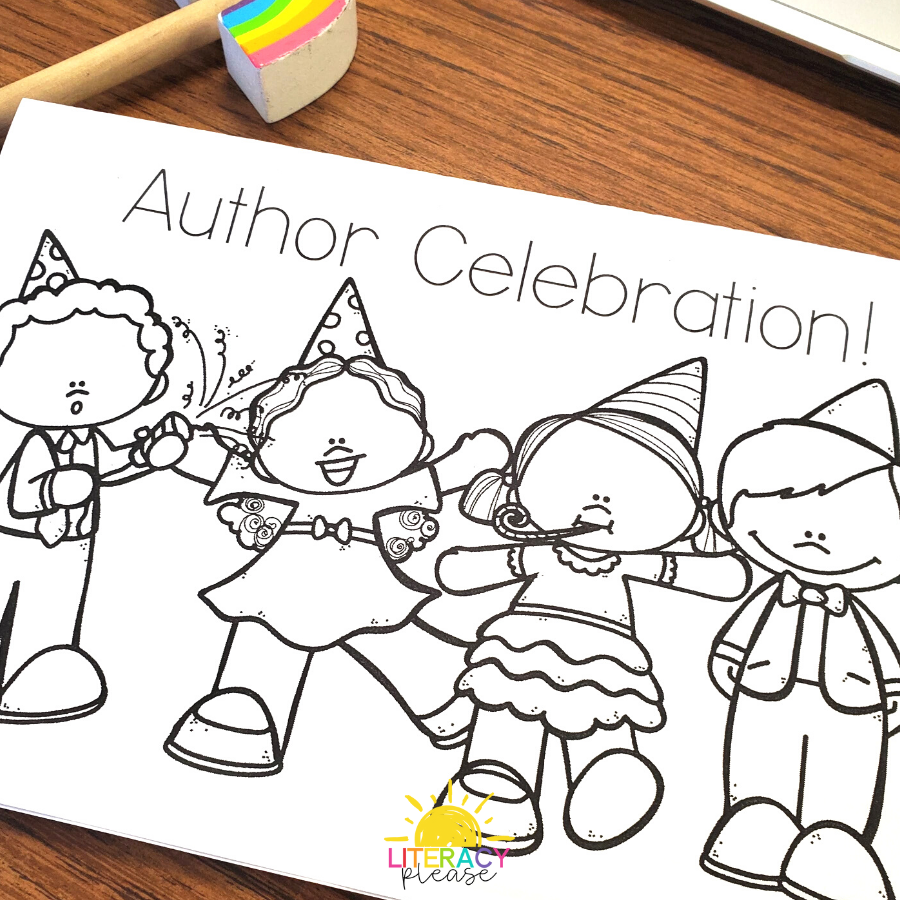
I never force a kid to share since writing can be so personal, but I do encourage students to share. If you’re looking for something to make the day a little more special, here is a cute resource I found on Teachers Pay Teachers that students will love. My students love when I make a simple card and write a quick personalized note about their writing. They also enjoy writing and giving compliments to their classmates. Just make the day special by celebrating your writers.
Well, there you have it, the First 5 Days of Writing Workshop. If you’re new to writing workshop or looking for ways to change it up, the first 5 days are a great way to get started. Your kids will enjoy making books and sharing with each other. They’ll become more confident and begin using all those other skills you’ve been teaching them–phonics, grammar/language, organization, and the list goes on. Don’t forget to get your hands on the guide!
